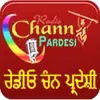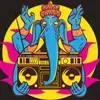Desi Live Radio Stations
Radio Stations
- Dil Apna Punjabi

- FMRADIO92

- Hindi Desi Bollywood Evergreen Hits Channel 1Hindi Desi Bollywood Evergreen Hits Channel 1
- Hindi Desi Bollywood Evergreen Hits Channel 2Hindi Desi Bollywood Evergreen Hits Channel 2
- Hindi Desi Bollywood Evergreen Hits Channel 3Hindi Desi Bollywood Evergreen Hits Channel 3
- Hits Of BollywoodHits Of Bollywood
- Hits Of Lata MangeshkarHits Of Lata Mangeshkar
- Hits Of Mohammed RafiHits Of Mohammed Rafi
- MelodyRadio TeluguMelodyRadio Telugu
- Radio Central 24

- Radio Chann Pardesi

- SomaFM Suburbs of Goa (AAC)

- SomaFM Suburbs of Goa (MP3)

Choose a Genre
Desi Music: A Fusion of Tradition and Modern Beats
The term "Desi" is deeply ingrained in the cultural and musical heritage of the Indian subcontinent, referring to music that originates from India, Pakistan, and Bangladesh. Derived from the Sanskrit word "desh," meaning country, Desi music represents the diverse and vibrant sounds that have shaped the cultural identity of South Asia for centuries. From traditional folk tunes to contemporary pop hits, Desi music encompasses an array of genres that continue to influence listeners worldwide.
The Roots of Desi Music
Desi music has a rich history that spans thousands of years. Its origins can be traced back to the ancient civilizations of the Indian subcontinent, where music was an essential part of religious ceremonies, royal courts, and cultural events. Classical music forms such as Carnatic and Hindustani have been central to the Desi musical tradition, characterized by intricate rhythms, melodic scales, and improvisational performances.
Over the centuries, Desi music has evolved, absorbing influences from various musical traditions, including Persian, Arabic, and Western styles. As a result, it has become an eclectic mix of sounds, blending traditional instruments like the tabla, sitar, flute, and sarangi with more modern elements such as electronic beats and synthesizers.
The Diversity of Desi Music Genres
Desi music is as diverse as the region itself, encompassing a wide variety of genres and styles. The core genres of Desi music include:
Folk Music: Rooted in the rural traditions of South Asia, folk music is characterized by its simple, melodic tunes and lyrics that often reflect the lives and struggles of ordinary people. Instruments like the dhol and sitar are commonly used in folk music, which can vary greatly from region to region.
Classical Music: Both Hindustani (North Indian) and Carnatic (South Indian) classical music have rich traditions with complex ragas (melodic structures) and talas (rhythmic patterns). Classical music is often performed in a highly structured form, with vocal and instrumental performances being an integral part of the classical tradition.
Devotional Music: This genre includes music associated with religious practices, such as bhajans (devotional songs), qawwalis (Sufi music), and kirtans (Hindu devotional songs). These performances are meant to evoke a spiritual connection with the divine and are an essential part of religious ceremonies and festivals.
Pop and Contemporary Music: Desi pop music has evolved significantly in recent decades, particularly through the influence of Bollywood. Modern Bollywood music features catchy tunes, vibrant lyrics, and a fusion of classical and Western elements, making it incredibly popular worldwide. The Punjabi music scene, which often includes Bhangra and Hip-Hop, has also seen significant global influence.
Film Music: Arguably the most globally recognized aspect of Desi music is Bollywood music, which is a hallmark of Indian cinema. Songs from Bollywood films have a massive following, and their blend of melodious tunes with dramatic visuals has influenced music lovers all over the world.
Desi Music on the Global Stage
With the rise of Bollywood and the increasing accessibility of South Asian music through the internet, Desi music has gained widespread recognition globally. Platforms like YouTube, Spotify, and Apple Music have made it easier for fans outside South Asia to discover Desi music and engage with the vibrant culture that surrounds it.
As the world becomes more interconnected, the fusion of Desi music with other global music styles has resulted in exciting collaborations and cross-genre experimentation. Artists like A.R. Rahman, Rahat Fateh Ali Khan, Neha Kakkar, and Badshah have garnered international fame, further cementing Desi music’s place in the global music scene.
Desi Radio: The Pulse of South Asian Music
One of the best ways to experience Desi music is through Desi radio stations. These stations cater to fans of South Asian music by providing a platform that plays a blend of both classic and contemporary tracks. They often feature a mix of talk shows, news, and cultural commentary, giving listeners an immersive experience that goes beyond just music.
Popular Desi radio stations include Radio Mirchi, BBC Asian Network, Desi Radio UK, and Radio City. These stations play a variety of music genres, ranging from traditional folk and classical to Bollywood hits and modern pop. They also offer interviews with artists, celebrity gossip, and updates on cultural events and festivals.
Desi Music and Culture: A Celebration of Heritage
Desi music is not just about the sounds and rhythms—it’s an integral part of South Asian culture. The fashion, dance, and festivals associated with Desi music create a unique cultural experience that resonates deeply with South Asians worldwide. From the iconic Bhangra dance to the mesmerizing rhythms of Bollywood choreography, music and movement are intrinsically linked to cultural identity.
Bollywood movies, with their energetic song-and-dance sequences, have played a major role in popularizing Desi music globally, especially among the South Asian diaspora. These films combine music, cinema, and fashion in ways that have made them a beloved part of the global entertainment landscape.
Conclusion: A Musical Tradition That Bridges Generations
Desi music is an enduring cultural force that continues to evolve while staying deeply connected to its roots. Whether you’re drawn to the timeless beauty of classical ragas, the infectious energy of Bollywood hits, or the modern beats of Desi pop, there’s something for everyone in this rich musical tradition.
For those looking to explore the vibrant world of Desi music, Desi radio stations are the perfect gateway. With their diverse programming and rich cultural commentary, these stations offer listeners an authentic experience that celebrates the diverse musical traditions of South Asia. As Desi music continues to rise in popularity, it promises to remain a key part of the global music scene for years to come.
The term "Desi" is deeply ingrained in the cultural and musical heritage of the Indian subcontinent, referring to music that originates from India, Pakistan, and Bangladesh. Derived from the Sanskrit word "desh," meaning country, Desi music represents the diverse and vibrant sounds that have shaped the cultural identity of South Asia for centuries. From traditional folk tunes to contemporary pop hits, Desi music encompasses an array of genres that continue to influence listeners worldwide.
The Roots of Desi Music
Desi music has a rich history that spans thousands of years. Its origins can be traced back to the ancient civilizations of the Indian subcontinent, where music was an essential part of religious ceremonies, royal courts, and cultural events. Classical music forms such as Carnatic and Hindustani have been central to the Desi musical tradition, characterized by intricate rhythms, melodic scales, and improvisational performances.
Over the centuries, Desi music has evolved, absorbing influences from various musical traditions, including Persian, Arabic, and Western styles. As a result, it has become an eclectic mix of sounds, blending traditional instruments like the tabla, sitar, flute, and sarangi with more modern elements such as electronic beats and synthesizers.
The Diversity of Desi Music Genres
Desi music is as diverse as the region itself, encompassing a wide variety of genres and styles. The core genres of Desi music include:
Folk Music: Rooted in the rural traditions of South Asia, folk music is characterized by its simple, melodic tunes and lyrics that often reflect the lives and struggles of ordinary people. Instruments like the dhol and sitar are commonly used in folk music, which can vary greatly from region to region.
Classical Music: Both Hindustani (North Indian) and Carnatic (South Indian) classical music have rich traditions with complex ragas (melodic structures) and talas (rhythmic patterns). Classical music is often performed in a highly structured form, with vocal and instrumental performances being an integral part of the classical tradition.
Devotional Music: This genre includes music associated with religious practices, such as bhajans (devotional songs), qawwalis (Sufi music), and kirtans (Hindu devotional songs). These performances are meant to evoke a spiritual connection with the divine and are an essential part of religious ceremonies and festivals.
Pop and Contemporary Music: Desi pop music has evolved significantly in recent decades, particularly through the influence of Bollywood. Modern Bollywood music features catchy tunes, vibrant lyrics, and a fusion of classical and Western elements, making it incredibly popular worldwide. The Punjabi music scene, which often includes Bhangra and Hip-Hop, has also seen significant global influence.
Film Music: Arguably the most globally recognized aspect of Desi music is Bollywood music, which is a hallmark of Indian cinema. Songs from Bollywood films have a massive following, and their blend of melodious tunes with dramatic visuals has influenced music lovers all over the world.
Desi Music on the Global Stage
With the rise of Bollywood and the increasing accessibility of South Asian music through the internet, Desi music has gained widespread recognition globally. Platforms like YouTube, Spotify, and Apple Music have made it easier for fans outside South Asia to discover Desi music and engage with the vibrant culture that surrounds it.
As the world becomes more interconnected, the fusion of Desi music with other global music styles has resulted in exciting collaborations and cross-genre experimentation. Artists like A.R. Rahman, Rahat Fateh Ali Khan, Neha Kakkar, and Badshah have garnered international fame, further cementing Desi music’s place in the global music scene.
Desi Radio: The Pulse of South Asian Music
One of the best ways to experience Desi music is through Desi radio stations. These stations cater to fans of South Asian music by providing a platform that plays a blend of both classic and contemporary tracks. They often feature a mix of talk shows, news, and cultural commentary, giving listeners an immersive experience that goes beyond just music.
Popular Desi radio stations include Radio Mirchi, BBC Asian Network, Desi Radio UK, and Radio City. These stations play a variety of music genres, ranging from traditional folk and classical to Bollywood hits and modern pop. They also offer interviews with artists, celebrity gossip, and updates on cultural events and festivals.
Desi Music and Culture: A Celebration of Heritage
Desi music is not just about the sounds and rhythms—it’s an integral part of South Asian culture. The fashion, dance, and festivals associated with Desi music create a unique cultural experience that resonates deeply with South Asians worldwide. From the iconic Bhangra dance to the mesmerizing rhythms of Bollywood choreography, music and movement are intrinsically linked to cultural identity.
Bollywood movies, with their energetic song-and-dance sequences, have played a major role in popularizing Desi music globally, especially among the South Asian diaspora. These films combine music, cinema, and fashion in ways that have made them a beloved part of the global entertainment landscape.
Conclusion: A Musical Tradition That Bridges Generations
Desi music is an enduring cultural force that continues to evolve while staying deeply connected to its roots. Whether you’re drawn to the timeless beauty of classical ragas, the infectious energy of Bollywood hits, or the modern beats of Desi pop, there’s something for everyone in this rich musical tradition.
For those looking to explore the vibrant world of Desi music, Desi radio stations are the perfect gateway. With their diverse programming and rich cultural commentary, these stations offer listeners an authentic experience that celebrates the diverse musical traditions of South Asia. As Desi music continues to rise in popularity, it promises to remain a key part of the global music scene for years to come.